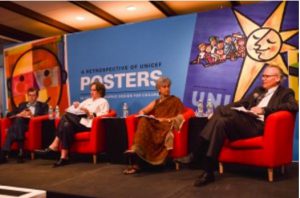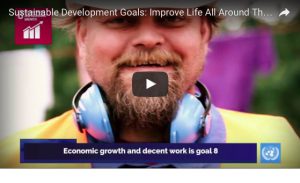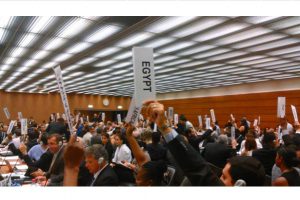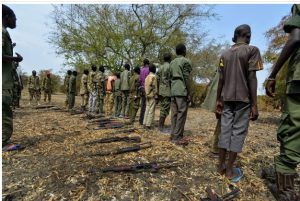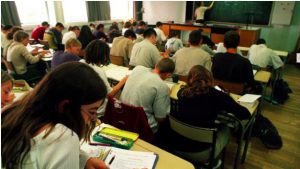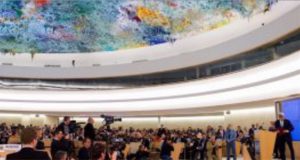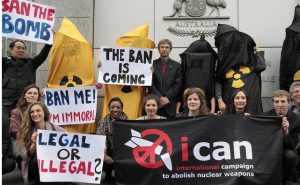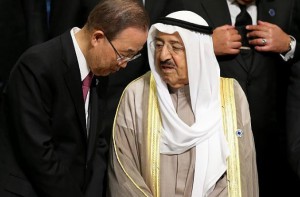FREE FLOW OF INFORMATION
An article from Bangla News 24 (reprinted for non-commercial use)
A day-long High Level Forum on a Culture of Peace was held at the Trusteeship Council Chamber at the UN Headquarters on Thursday (September 1). The High Level Forum provides an opportunity for the member states and stakeholders to have an exchange of views on ways to build and promote the Culture of Peace which is very much called for in present world.
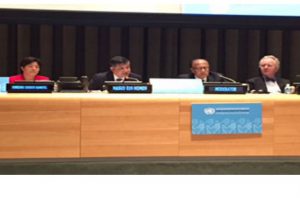
Mogens Lykketoft, President of the 70th Session of the General Assembly, chaired the opening segment while Ambassador Edmuond Mulet, Chef de Cabinet of the Executive Office of the UN Secretary General read out message on behalf of the Secretary General Ban Ki-moon.
Ouided Bouchamaoui, Founder of The Tunisian National Dialogue Quartet, Nobel Peace Prize 2015 Laureate, made the Key Note Address. The keynote speaker highlighted the role of civil society which can play and should play to make our world a better place ensuring peace and justice for all.
It was concluded by the outstanding musical performances by FJ Music Duo.
Forty country representatives made statement in the program among Permanent Representative and Ambassador of Bangladesh Masud Bin Momen on behalf of the Bangladesh Delegation.
The statements of the President General Assembly and of the UNSG re-asserted and re-affirmed the commitment of the totality of the Member States for building the culture of peace and the international community’s determination to work more diligently for its realization.
President General Assembly, as well as, most of the delegations acknowledged the role of Bangladesh in promoting the issue of cultural of peace at the United Nations and beyond.
The Bangladesh representative said a culture of peace is an aspiration of all humanity, the essence of the UN Charter, and also an imperative in the current global context. Promoting and inculcating a mindset of a culture of peace is at the core of peaceful and mutually respectful co-existence and dialogue among different civilizations, religions, faiths and beliefs around the globe.
The afternoon session was comprised of two Panel discussions.
The title of the Panel-1 “Enhancing synergy between Sustainable Development Goals (SDGs) and eight action areas of the UN Programme of Action on Culture of Peace” which was Chaired by Anwarul K. Chowdhury, Former Under-Secretary-General and High Representative of the United Nations. Masud Bin Momen, Permanent Representative of Bangladesh to the United Nations, intervened in the Panel-1 as a Panelist. He said, a critical linkage between peace and development has been underscored in sustainable development goals for promoting peaceful and inclusive societies for sustainable development provided access to justice for all and build effective accountable and inclusive institutions at all levels.
Panel-2 discussion was on “The Role of Youth in advancing the Culture of Peace in the context of the implementation of the UN Security Council Resolution on Youth, Peace and Security”. This Panel was chaired by Katalin Annamaria Bogyay, Permanent Representative of Hungary to the United Nations.
